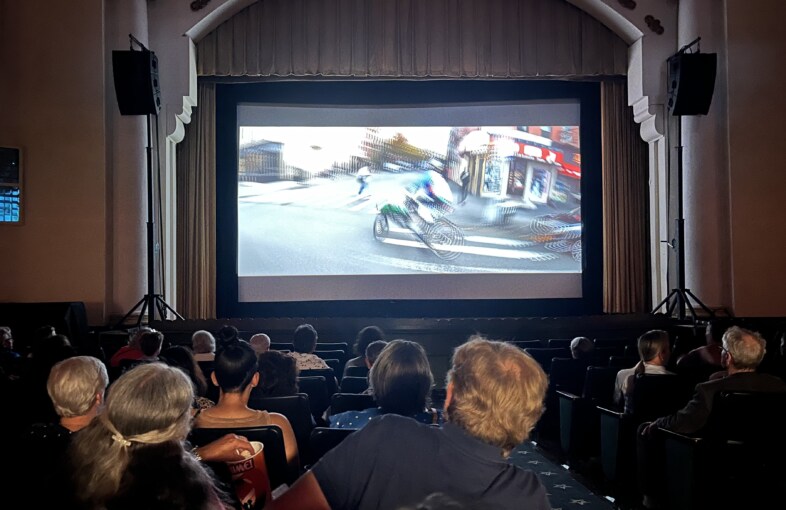
by Shawna Kitzman, Senior Planner, Toole Design
Recently, I had the privilege to organize a screening of The Street Project with Bike Newport which took place on August 13th at the Jane Pickens Theater in Newport. This film explores the critical issue of unsafe street designs in the United States and the culture and policies behind it. Director Jennifer Boyd questions how we’ve come to view our streets, exploring the potent impact of zoning laws, auto-centric priorities and designs, and the misguided use of victim blaming in incidents involving vulnerable road users.
Following the screening, Bari Freeman, the Executive Director and Founder of Bike Newport, moderated a panel discussion and Q&A with experts deeply involved in the fight to turn our streets into safer, more inclusive environments. Will Handsfield, a Bike Program Specialist with the Washington, D.C. District Department of Transportation, discussed the nuanced municipal processes of street redesign and how bureaucratic challenges can often delay or dilute necessary changes. Michelle Danila, Toole Design’s Director of Engineering Operations for North America, shared insights on design improvements and demonstration projects that focus on people-centered streets. Local educator and advocate Allyson McCalla, the Director of Operations at Bike Newport and founder of Black Girls Do Bike: Newport, provided a grassroots perspective on community advocacy.
Bari opened the discussion by reiterating a hard-hitting fact from the film: the real danger on our streets stems not from driver distractions such as cell phones, but from fundamentally flawed, dangerous, and car-centric street designs. Attendees do not need to look far for examples of roadway violence: a 52-year old pedestrian was killed while in a marked Broadway crosswalk earlier this month.
“There was a time that we designed for the automobile,” Michelle said. “Now we must design for the most vulnerable road users, and that’s not drivers in cars or trucks. We’ve invested a lot in our automobile technology, but we’re all still humans, and we need to safely share our streets.”
So how do we create culture change that shifts to human-centered designs on Aquidneck Island? The panelists offered the following insights:
Provide opportunities for the public to see and experience incremental progress.
Panelists emphasized the value of demonstration projects — starting small to build momentum and public support. Allyson discussed how temporary bike lanes for the Folk and Jazz Festivals provided an inexpensive yet effective proof of concept. Michelle shared an example of a road diet project at MassDOT that used flex posts to narrow a major beach access road. Once people tested the new configuration, the state constructed it as a permanent solution. Will shared his experience working with a previous employer in Denver to develop a bike corral for the DNC Convention. The project began as a one-way protected bike lane and grew segment by segment. By starting small, the public were able to experience the incremental progress. This proof of concept demonstrated the demand for enhanced bike infrastructure and proves the sentiment “if you build it, they will come.”
Deal with resistance to change by increasing exposure to biking — for both residents and leadership.
“Municipal engineers and planners should have to ride the streets for a month before putting pen to paper,” Bari said, quoting Mikael Colville Andersen, an urban designer featured in the film. Bari shared insights from the Ride Island project’s curated field trip, in which the project team organized a group of 25 Aquidneck Island municipal planners, elected officials, business owners, first responders, and other influential stakeholders to visit Cambridge, MA. Arguably one of the most progressive bike- and pedestrian-friendly City on the East Coast, the day served as a “showcase” of an extensive pedestrian and bicycle infrastructure network, which has paid dividends. The participants have expressed how their understanding of “what could be” expanded after that day, and their perspective shift is already influencing local pilot projects and policies.
Will’s organization facilitates regular family bicycling events to show the neighborhood ways to democratize the streets, kids and parents together. Supported by police officers and adults who serve as “ride marshals”, this increased exposure builds the normalcy and comfort of riding. It’s working—more DC-students are biking to school, supporting bicycling friendly policy and design. It’s harder for decision-makers to say no to children.
Connect meaningfully with the community on Aquidneck Island.
Allyson reminded us that conversations with community members are key to inspiring change here on Aquidneck, citing the Bus to the Beach concept. Residents of the North End community, she explained, can’t access the beach without a car. The Transportation Working Group of Newport HEZ (Health Equity Zones) Transportation Working Group, led by Bike Newport, made the case directly to RIPTA, teling the first-person stories of Newport’s HEZ families deserving beach access. While pointing out the success of this grassroots effort to establish a needed, new, and free bus service, Allyson emphasized the importance of providing platforms for all community voices to be heard, especially those historically excluded from planning processes.
During the Q&A session, attendees engaged with the panelists, probing into the scalability of solutions from global examples to local realities, the funding mechanisms for infrastructure improvements, and the role of community advocacy in driving policy changes. Allyson left us with an important reminder that we are part of this change: “Know who your representatives are, go to school committee meetings, and get in touch with your local Health Equity Zone. There are so many community organizations that you can become a part of.”
Those interested in supporting the safe roadway design, policy changes, and incremental progress on Aquidneck are encouraged to sign up for Friends of Ride Island. The next event of Friends of Ride Island is scheduled for the evening September 19th at Newport Craft Brewery. Sign up for updates!
Lastly, the Rhode Island Public Transit Authority (RIPTA) is leading the development of data-driven Safety Action Plans for 32 municipalities, including Newport, Middletown, and Portsmouth, as well as a statewide plan. Your input is valuable! Please complete the 5-minute community survey about your travel patterns and safety concerns before September 30.
Shawna Kitzman is Senior Planner at Toole Design and a close working partner on the Ride Island collaborative initiative. Read more about Shawna HERE. With “First Person”, we welcome narratives submitted by our colleagues. If you’d like to propose a “First Person” submission, please write to bari@bikenewportri.org. Thank you!
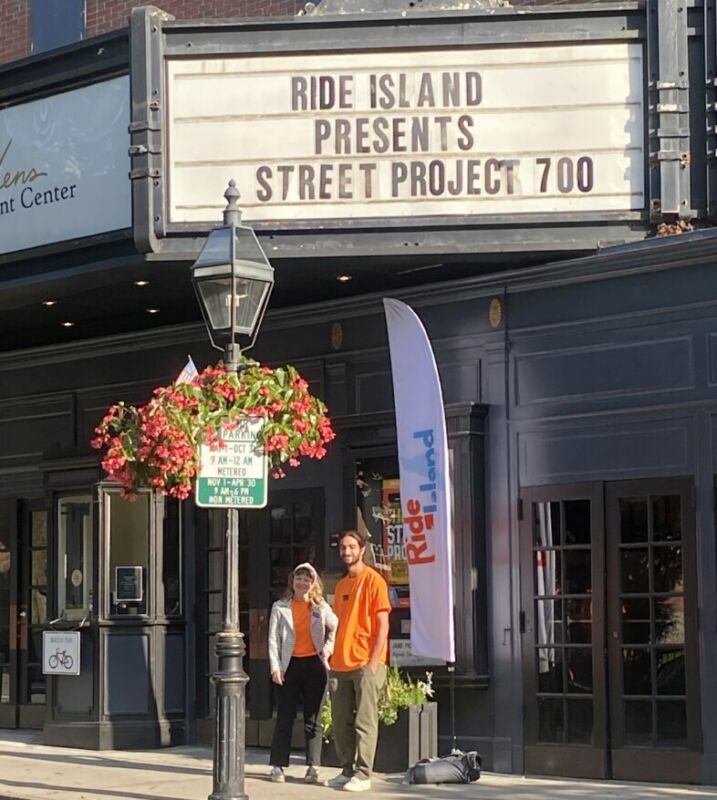
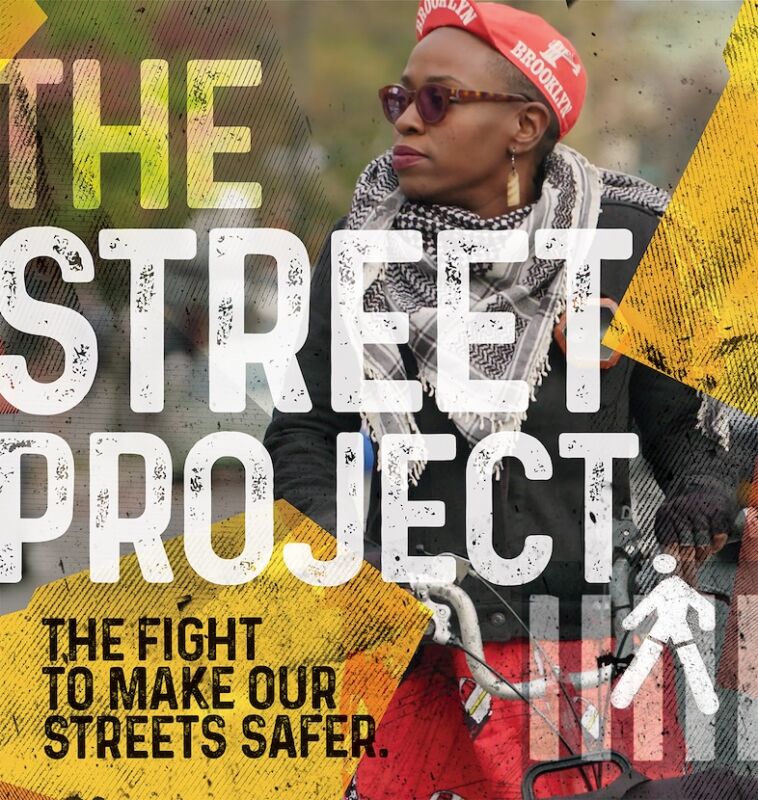
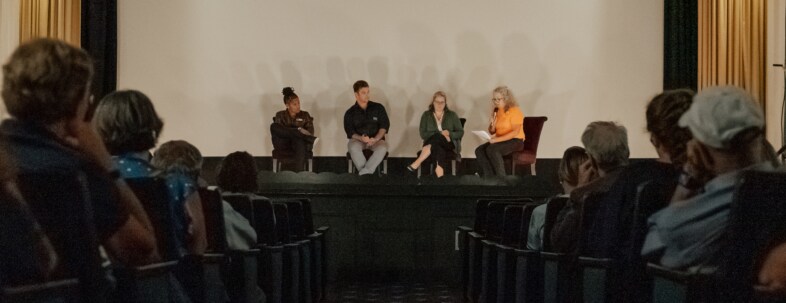

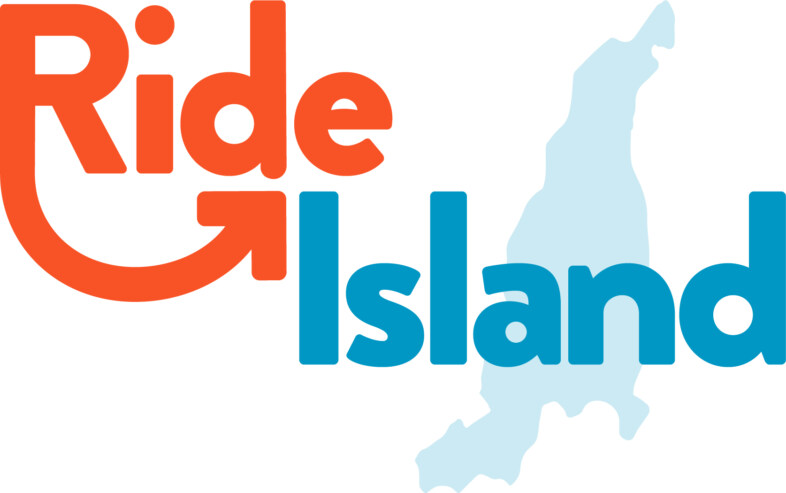
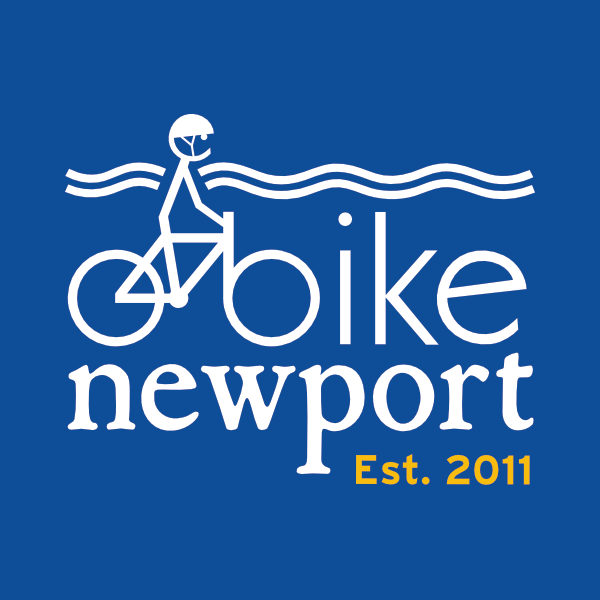
 Bike Newport
Bike Newport